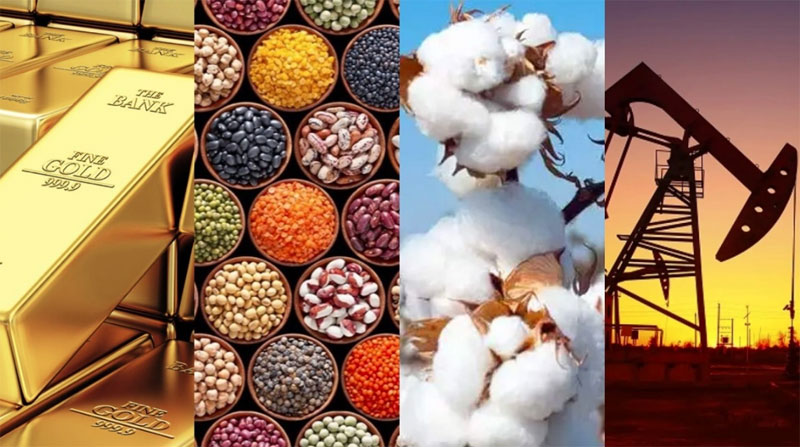COMMODITIES SLIDES FURTHER

WTI crude futures fell toward $84 per barrel on Thursday, extending losses from the previous session as a weakening demand outlook took center stage again after geopolitical tensions eased. Investors fretted about a gloomy economic outlook, with JPMorgan projecting that the US will enter a mild recession next year due to rapid rate rises. China also continued to grapple with rising Covid cases that clouded the demand outlook in the world’s biggest crude importer. Oil prices declined as well after NATO cleared Russia of the missile attack in Poland, allaying fears of a wider conflict in Europe. On the supply side, flows through the Druzhba pipeline which carries Russian oil to Hungary had resumed following a brief power disruption. Still, traders remained cautious about the supply outlook as the European Union is set to ban Russian crude flows from December, while OPEC is expected to keep supply tight.
Gold prices fell below $1,770 an ounce on Thursday, sliding for the second straight session as the dollar was buoyed by stronger-than-expected US retail sales data that clouded the outlook for inflation and indicated the need for more interest rate hikes. Federal Reserve officials continued to signal a firm hawkish stance, with San Francisco Fed President Mary Daly emphasizing that a pause is “off the table,” while Kansas City Fed President Esther George said that policymakers must be “careful not to stop too soon” on hiking rates and that achieving a soft landing might be difficult. Gold also declined as the safe-haven flows driven by the latest geopolitical concerns started to fade. Meanwhile, Silver futures were below $21.6 per ounce, easing slightly from the five-month high of $21.
Copper futures fell below $3.8 per pound from the five-month high of $4 hit on November 11th, pressured by concerns of lower demand. Data from top consumer China showed that industrial production slowed more than expected in October, while house prices decline for the sixth consecutive month and further emphasized low demand for the country's highly indebted property developers. Still, copper prices remain 11% higher since the start of November as looming supply concerns limited the retreat. Commodity trader Trafigura warned that global copper stocks have fallen to record lows, with current inventories enough to supply world consumption for just 4.9 days. Freeport-McMoran was also vocal about shortage risks, stating that low prices do not reflect the tightness of the physical market.
Steel rebar futures were at CNY 3,730 per tonne, hovering close to the one-month high of CNY 3,757 hit on November 17th, benefiting from stimulus measures and hopes of eased Covid restrictions in top consumer China. The national bond regulator expanded a major financing support program by CNY 250 billion for the country’s private developers, aiming to counter the debt woes that hampered investments as the sector faced a period of record defaults. Also, building starts by non-developers were seen 30% higher in the first nine months of the year, supporting demand. In the meantime, Beijing shortened the quarantine period for individuals in close contact with Covid patients despite rising cases, ramping up hopes that other measures to open the economy could follow. Still, recession concerns pressured prices to remain 30% down from the May 2022 peak. The World Steel Association revised its forecast of global demand to contract by 2.3% this year, compared to earlier forecasts of a 0.4% rise.


